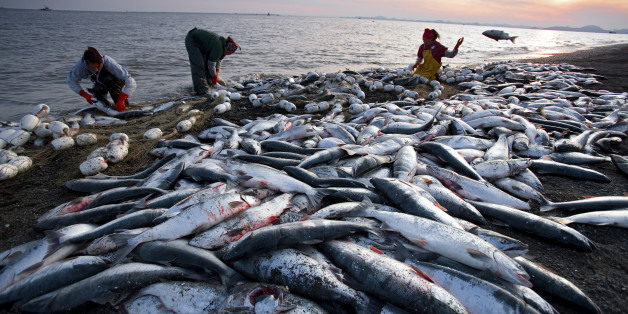
Egyptians celebrate Sham el-Nessim each year by eating fesikh, herring, and salted fish, being one of the manifestations of the day’s celebrations. However, doctors have again warned against eating excessive salted fish, especially for people suffering from chronic diseases.
Al-Ahram website quoted doctor Mohamed Khairy, an obesity and nutrition consultant, as saying that eating too many meals which surpass the individual’s daily needs of sodium chloride, especially for people suffering from chronic diseases, exposes the person to health damage in the long term, including high blood pressure and kidney failure and sometimes it leads to a burst of blood vessels.
He recommended adding to salted fish lemon, lettuce and cucumber, in order to avoid the high acidity level in the stomach.
Khairy also advised washing fesikh and sardines with diluted vinegar and lemon juice to reduce the salt levels in the fish.
He explained that fesikh poisons are only deactivated after being exposed to high temperature for ten minutes by frying in oil. Herring is a safer alternative to fesikh due to being cooked and exposed to high temperatures, unlike fesikh, he added.
Khairy recommended eating large quantities of vegetables such as green onion, lettuce and thermos because it helps in getting rid of salt.
Vegetables absorb excess salt and expel it in the feces, Khairy mentioned.
He stressed the need to wash these vegetables well using vinegar to avoid hepatic infection.
He advised contacting a doctor or taking anti-toxins if symptoms of food poisoning, including diarrhea, respiratory or neurological symptoms.
Eating parsley, oranges, bananas and potassium-rich cantaloupe helps to remove excess salt from the body.
Hibiscus and parsley help the body with urinary incontinence. Additionally, herbs such as green tea with mint, thyme or cinnamon can help cleanse the stomach.
Khairy also advised not to eat excess fesikh specifically to avoid health problems. An individual should not eat more than 150 grams of fesikh in one meal. Children and pregnant women should not eat salted fish because it has a double negative effect on their health, Khairy said.




